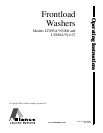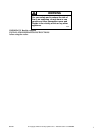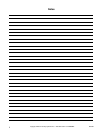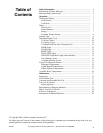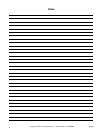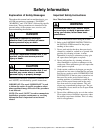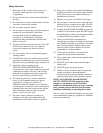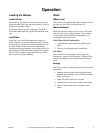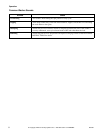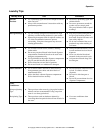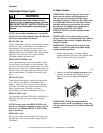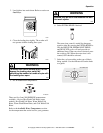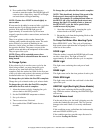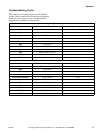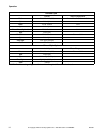
© Copyright, Alliance Laundry Systems LLC – DO NOT COPY or TRANSMIT
7
801562
Operation
Loading the Washer
Load Articles
Load items by the amount of space they take up, not
by their weight. Mix large and small items in a load to
get the best washing results.
Load items loosely into the wash drum. The bulk of
the clothes rather than the weight will determine load
size.
Load Sizes
Load sizes vary. Small and large items should be
washed together to create a balanced load. If washing
a large item, two bath towels should be added to even
the load. Smaller loads can create an unbalanced
condition and cause premature wear on the washer. Do
not hesitate to fill the entire inner drum of the washer.
The load will compress a great deal when wet. This
allows room for proper tumbling.
Water
Water Level
The washer will automatically adjust the water level to
the type and size of the load during any fill.
Water Hardness
Hard water will not remove soil as well as soft water
and can result in gray, dingy laundry. To get clothes
clean in hard water, use more detergent but avoid
oversudsing. Do not use soap.
Hard Water May Be Softened By:
1. A mechanical water softener installed in your
home.
2. The use of a packaged water conditioner.
Soft Water
Water should be soft enough to allow soaps and
detergents to remove soil effectively. Clothes will be
whiter and brighter when washed and rinsed in soft
water.
Energy
You can save energy when washing by following a few
guidelines:
1. Heating water accounts for the greatest energy
expense when washing. Save on heating water by
using cold rinses.
2. Wash full loads, but do not overload.
3. Soak heavily soiled items to reduce wash times.
4. Select a shorter wash time for lightly soiled
items.



